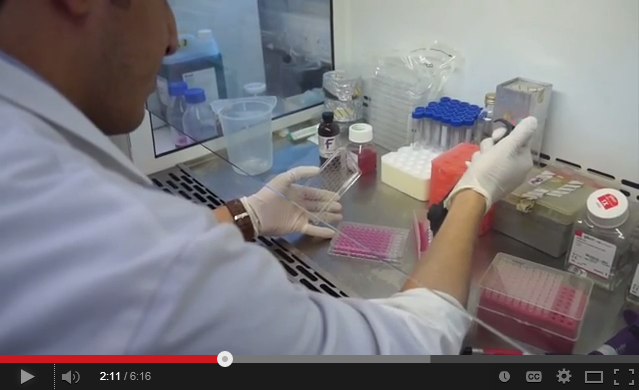A Cure For Heart Disease? Scientists Develop Lab-Grown Mini Beating Hearts, Test Meds With Them

A team of scientists from Abertay University have developed miniature beating hearts in the lab, providing researchers with a better insight into heart disease. By inducing ventricular hypertrophy into the hearts, they were able to test medications for the condition that might help find a cure.
Ventricular hypertrophy is a form of heart disease in which the muscles of the ventricles, or chambers, become thickened or enlarged.
Scientists have been working on developing lab-grown hearts for quite some time, but the authors of this particular study claim this is the first time researchers have been able to induce disease into mini hearts. “In some people, a life-threatening abnormal heart rhythm will develop, and this is the most common cause of sudden death in young people,” said Professor Nikolai Zhelev, an author of the study, in a press release. “Although there are treatments, these only help to control the symptoms and there is no known cure at the moment.”
Ventricular hypertrophy can be caused by diseases like diabetes; they can be hereditary; or they can be the consequence of too much strenuous exercise, Zhelev says. Because the muscles in the heart stiffen with this condition, it makes it harder for blood to be pumped through the body. In order to stimulate this condition in the lab-grown hearts, Zhelev and his team used chemicals to spur the physiological features and abnormal cells that make the hearts hypertrophic. This way, scientists are able to treat the hearts with new therapies and medications to test their efficacy.
“We’ve tested a number of different compounds on these hearts — some of them entirely new ones that haven’t been tested in humans yet, which is why we’re testing them on these hearts we’ve grown in the lab,” Zhelev said.
The hearts are tiny — only about one millimeter in diameter. They contract at about 30 beats per minute, and were developed using stem cells. By using biosensors that pinpoint certain molecules and pathways that have to do with ventricular hypertrophy, the researchers aim to be able to develop medications that target these molecules. In fact, they found that one particular cancer drug worked well in halting hypertrophy — since the pathways of molecules in hypertrophic hearts are quite similar to those in cancerous cells, they hypothesized that a cancer drug might have a positive effect on the heart as well. It proved to be true.
Zhelev says that although it may be a long time before the drugs are available clinically and commercially, he hopes that “one day [we will] be able to stop heart hypertrophy from developing in those at risk of the disease.”



























